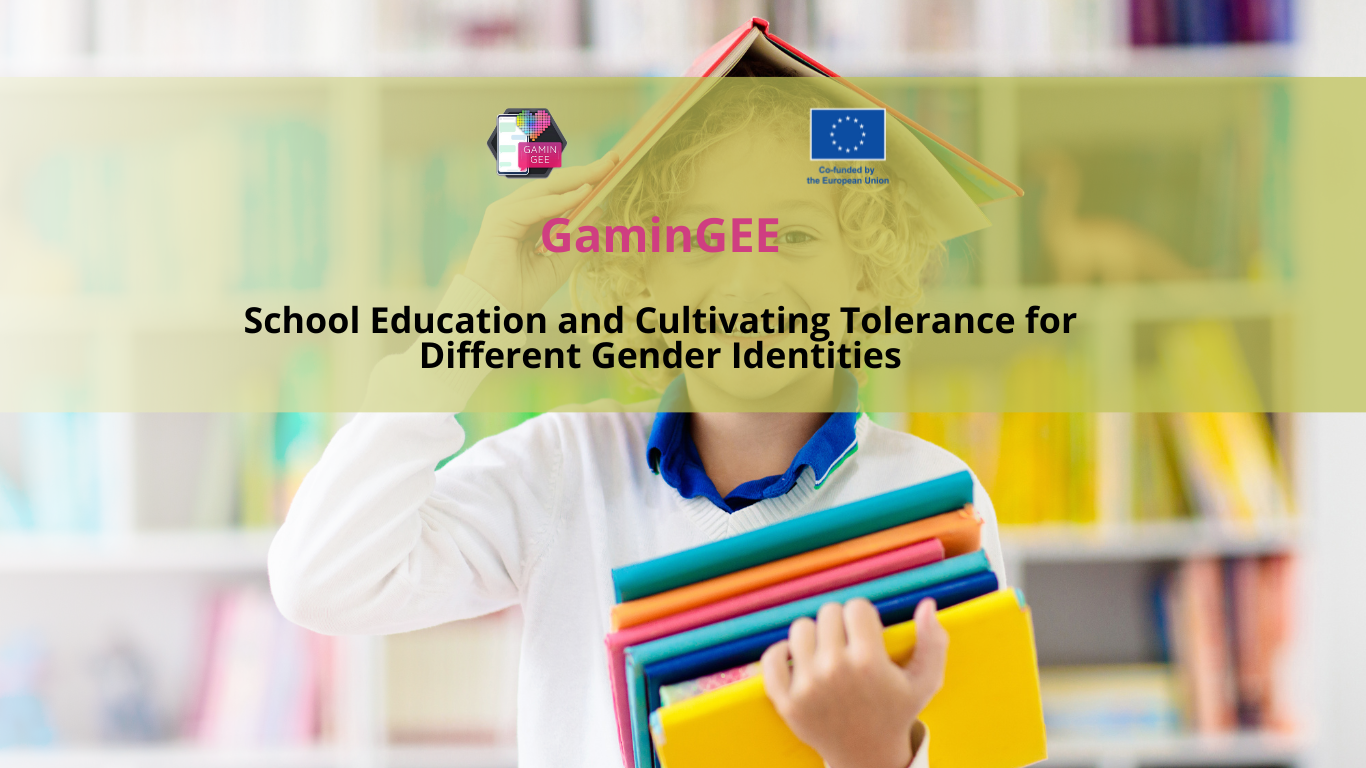
Schools play a crucial role in adressing and combating gender based discrimination because the values that they instill in pupils will guide the steps of most them into adulthood. So schools should not act only when a negative event takes place but act actively and continuously to build an inclusive space where their students are treated equally and can feel safe to express who they are.
As defined by the European Institute for Gender Equality (1), gender identity can be understood as „Each person’s deeply felt internal and individual experience of gender, which may or may not correspond to the sex assigned at birth, including the personal sense of the body (which may involve, if freely chosen, modification of bodily appearance or function by medical, surgical or other means) and other expressions of gender, including dress, speech and mannerisms”.
GaminGEE is an Erasmus+ KA2 initiative which aims to provide teachers and educators with guidance to identify and address inappropriate behaviors against gender diversity, provide support to those who suffer from gender diversity and guide young people towards understanding and tolerance of gender diversity. GaminGEE also advocates for the social inclusion of the LGTBIQ + community and any other sexual minority, paying attention to the violence suffered even in formal education settings such as schools. Therefore, as previously stated, mainstreaming gender equality in education and addressing school-related gender-based violence are fundamental steps for achieving equal access to education for all.
The United Nations Educational, Scientific and Cultural Organization (UNESCO) has published a report (2) where they address the issue of school violence based on sexual orientation, gender identity/expression or sex characteristics (SOGIESC). They have found that SOGIESC-based violence occurs in all member States, regardless of the socio-economic, cultural or political context and that the most prevalent forms of violence generally encountered are verbal violence and bullying. Overall transgender students (regardless of their gender identity) and gay male students report the highest levels of SOGIESC-based violence and even students that are not part of the LGBTI community were affected by similar forms of violence because they were perceived like they could be part of it due to the fact that they expressed their identity in a gender nonconfotmative way although they were cis and straight.
The GaminGEE platform offers more information and specific materials for teaching gender identity and gender diversity to young children. It offers 2 free to access and free to download guides, one for teachers and one for families which were created with the aim of being a reference for educators/families in terms of information and resources on issues related to sexual education for children and teenagers between the ages of 9 and 15. The main contents covered are equality, sexual diversity, consensus and consent, self-care, caring for others, love and emotions, stereotypes, and the consumption of pornography. The different topics of the guide have been elaborated after an exhaustive review of the scientific literature and the participation of different interest groups, thanks to the collaborative work of experts in the field from different European countries.
GaminGEE encourages young people to explore and find their own identities, including in the field of gender, as well as expressing it freely. Gender equality is a fundamental component in every lesson and topic approached on the platform but it is not limited to the equality of men and women but that of all people, even if they don’t fit in the gender binary.
UNESCO also actively promotes mainstreaming gender across the whole school level (3). Some actions that they recommended are:
- training on gender equality for principals and teachers, as well as school management committees and/or the parent-teacher associations present in schools in order to create more gender sensitive schools
- ensuring gender balance inside school management committees and parent-teacher associations
- embedding gender equality in the curriculum and teaching and learning materials
- ensuring guidance, counseling and student participation in decision-making processes
- encouraging community members and parents participation in children’s education while being mindful of the importance of gender equality and inclusiveness for all children
- school policies should include a statement of gender equality, a strong statement against gender-based discrimination, and zero tolerance of violence in any form
Further information about this topic and many more can be found on the GaminGEE platform by accessing https://learn.gamingee.eu/ where you will find a wide selection of free resources and learning materials that can be used inside the classroom, as well as the family home.
References:
(1) European Institute for Gender Equality, https://eige.europa.eu/publications-resources/thesaurus/terms/1049
(2) UNESCO, Council of Europe, Safe at School: Education Sector Responses to Violence Based on Sexual Orientation, Gender Identity/Expression or Sex Characteristics in Europe.
(3) UNESCO, Mainstreaming Gender at the Whole-School Level



Leave A Comment